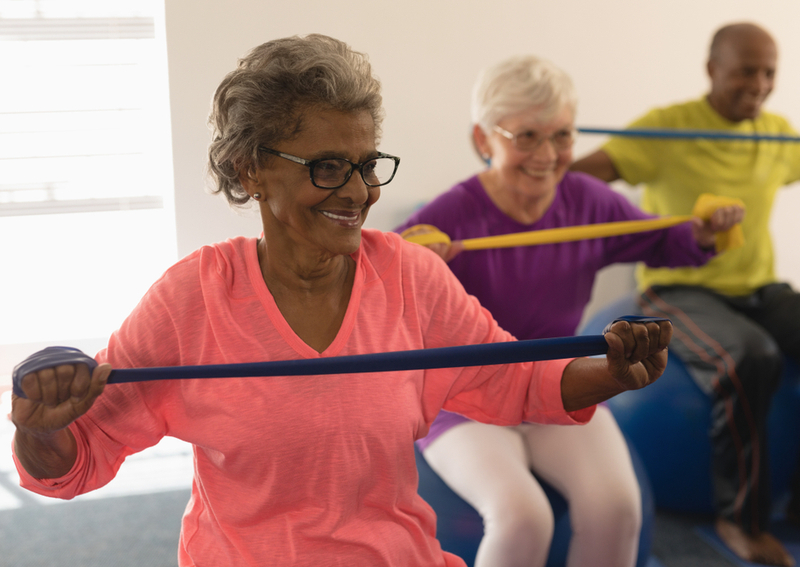
The Importance of Regular Exercise in Seniors With Alzheimer’s
Exercising regularly can help seniors with Alzheimer’s disease in a lot of ways. It helps to address the common symptoms of the condition, such as low energy, reduced focus, and balance problems while helping to deal with depression, anxiety, and sleeping troubles as well. That is why assisted living homes advise following a regular exercise schedule to their residents.
The Importance of Regular Exercise
Researchers say that “Repetitive exercises such as walking, indoor bicycling, and even tasks such as folding laundry may lower anxiety in people with the disease because they don’t have to make decisions or remember what to do next. They also can feel good knowing that they’ve accomplished something when they’re finished.”
The Wake Forest School of Medicine also found that regular exercise has a positive effect on the brains of seniors with Alzheimer’s disease. Besides, mild to moderate physical workout also helps elder people to deal with the underlying conditions, such as diabetes and cognitive impairment, which can lead to Alzheimer’s at a later stage. The study concluded that “Exercisers had better blood flow in the memory and processing centers of their brains and had a measurable improvement in attention, planning, and organizing abilities referred to as executive function.”
All these findings are very significant as there are no medications available in the market that can have the same positive effect on the brain when a person is diagnosed with Alzheimer’s. An assisted living center will have trained staff to help residents with these tasks. Below are some of the simple exercises that can greatly benefit seniors with the conditions.
- Walking: A simple stroll in the senior care community grounds for 35 – 40 minutes per day can help to maintain a healthy body and mind. It does not have to be done in a stretch; walking can also be broken into 2 – 3 sessions.
- Chair yoga: Seniors having difficulty moving around and balance issues can try yoga poses, stretching, and breathing exercises on a chair to improved stability. It will help seniors with coordination and balance while improving flexibility and relaxation.
- Riding a stationary bike: Many assisted living homes have in-house gyms to help seniors maintain a healthy lifestyle by working out. Riding a stationary bike at the gym in the senior care home can help to ease the stress on their muscles, improve heart functions, and regulate mood.
Strength training: Weight training can greatly help to combat the problems related to bone loss while improving muscle strength. However, seniors are recommended to consult with their primary healthcare expert before trying any strength training exercises.
